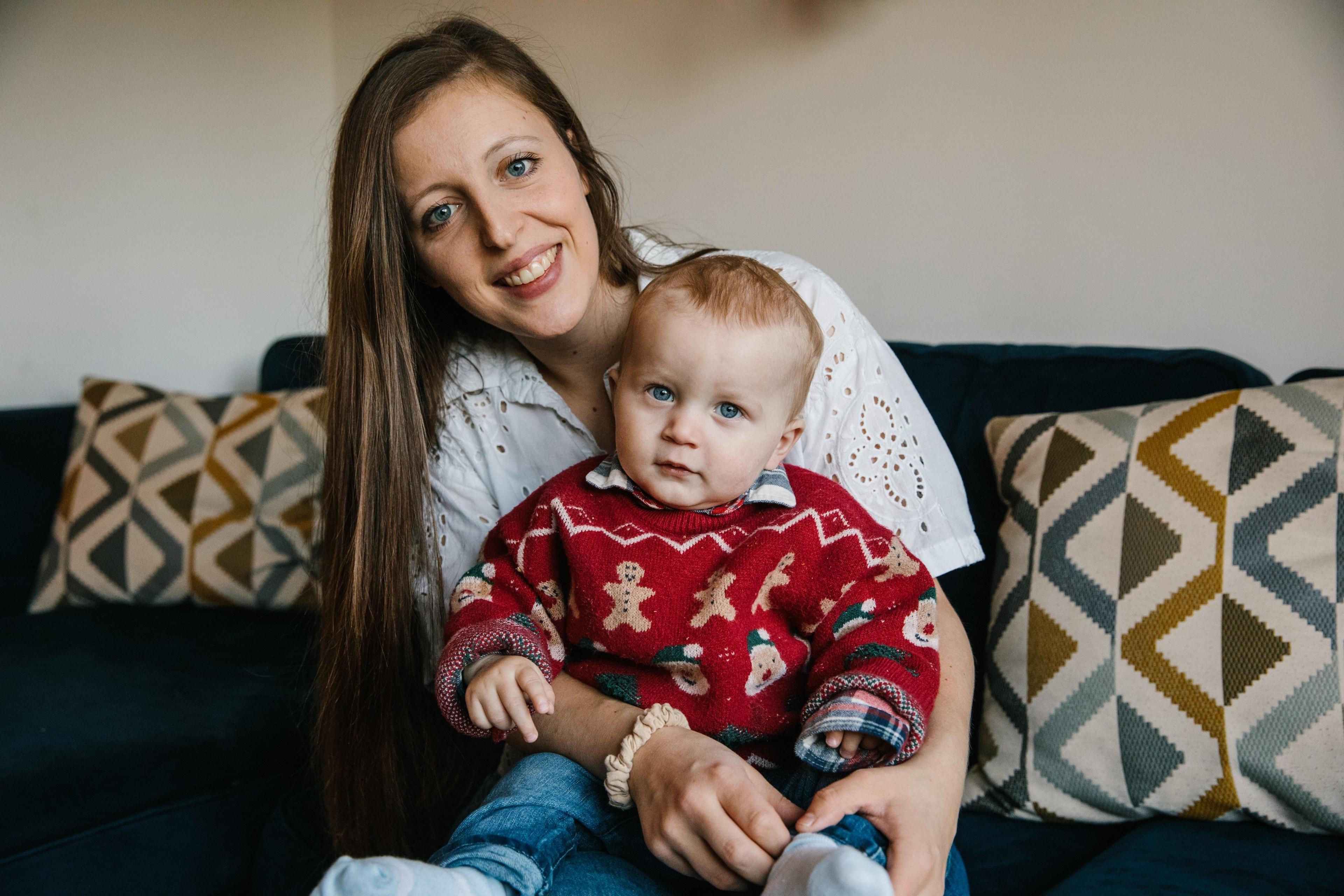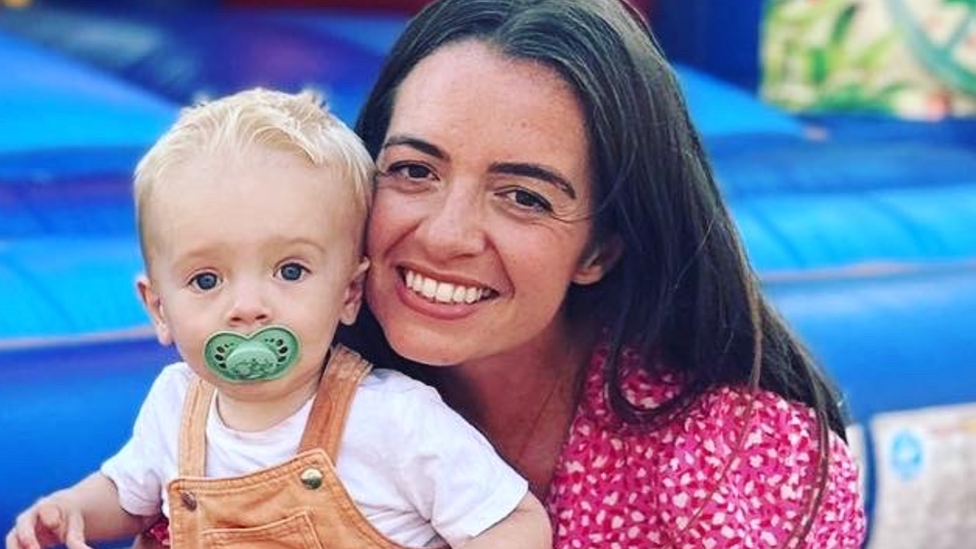Fears son's age may deny cystic fibrosis drug

Emily Terrell said the drug Kaftrio would give Archie a near-normal life
At a glance
Archie, who is 13 months old, has cystic fibrosis and could benefit from a life-enhancing and prolonging drug called Kaftrio
The National Institute for Health and Care Excellence (NICE) is considering if it is too expensive to be offered on the NHS to new patients
The drug maybe withdrawn before Archie is old enough to benefit
A decision on whether to offer Kaftrio to new patients is expected in March
- Published
A baby with cystic fibrosis may be denied a life-changing drug because of his age, his mum has said.
Archie, who is 13 months old, from Ponteland, Northumberland, was diagnosed with the genetic condition shortly after birth.
He takes medication to control it and would normally be entitled to the so-called “miracle drug” Kaftrio when he is two years old.
The National Institute for Health and Care Excellence (NICE) has said in draft guidance it is too expensive to be offered on the NHS to new patients.
'A normal life'
A final decision is expected in March next year.
Kaftrio is understood to cost about £100,000 per patient every year and is one of three modulator drugs for the condition that NICE has recommended that the NHS withdraws.
Archie’s mother, Emily Terrell, said Kaftrio would give Archie a near-normal life, including extending his life expectancy.
Currently, about half of people with cystic fibrosis will live past the age of 40.
Children born with the condition today are likely to live longer than this.
Emily said: "It affects his lungs so he has to have daily physio. Every morning he has to have two medications and every evening he has seven medications.
"He can't jump in puddles because of the stagnant water, he can't go in butterfly houses, he can’t do everything a normal child can do.
"With Kaftrio there wouldn’t be any need for hospital admissions, he'd have less antibiotics, he would just have a completely normal life. Archie's life-expectancy would be that of a normal person."
'Running marathons'
Emily described the three modulator drugs - Orkambi, Symkevi and Kaftrio - as "absolutely life-changing" for cystic fibrosis patients.
She said: "People that are on them have been taken off the transplant list; patients who've had a lung function of between 11 and 15% are now at 88-90%; patients are running marathons after taking this drug.
"It's the closest thing to a cure they'll ever have.
"At the moment, the drugs are just far too expensive for the NHS, but if anyone else's child had cystic fibrosis they would fight just as hard as we're all fighting."
Patients already taking Kaftrio, and those who are prescribed it between now and the final decision in March, will continue to get the drug.
But Archie is still too young be prescribed the medication.
"Neither myself or Sam want to bury our child and that is ultimately what would happen if Archie doesn’t have access to this drug," Emily added.
Calls for change
David Ramsden, CEO of Cystic Fibrosis Trust, has called for change.
"We must never return to a situation where people with cystic fibrosis die far too young, knowing there’s a treatment that could change that,” he said.
Helen Knight, director of medicines evaluation at NICE, said it was about ensuring taxpayers "continue to get value for money".
"We continue to work with the company, NHS England and other stakeholders including the Cystic Fibrosis Trust to deliver the best outcome both for people with cystic fibrosis and for the wider NHS," she said.
A Department of Health and Social Care spokesperson welcomed the news that "children as young as two will now be eligible for treatment with Kaftrio under the terms of the existing commercial agreement between the NHS and its manufacturer, which remains in place as NICE develops its final guidance".
Follow BBC North East & Cumbria on Twitter, external, Facebook, external and Instagram, external. Send your story ideas to northeastandcumbria@bbc.co.uk, external.
Related topics
- Published16 November 2023
